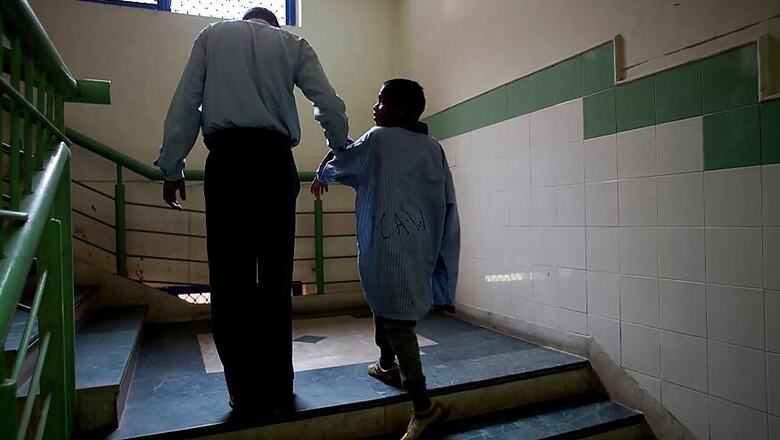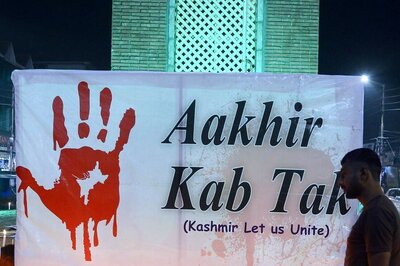
views
India’s first National Mental Health Survey was conducted in 2016 by the National Institute of Mental Health and Neurosciences (NIMHANS) on the Prevalence, Pattern and Outcomes of Mental Illness. The survey puts forth some really drastic revelations regarding the state of mental health in India.
According to the survey, 15% of Indians above 18 years are in need of active interventions for one or more mental health issue.
The National Mental Health Policy, 2014 and Mental Health Care Act, 2017 were recently enacted with the support of all parties in both Houses of the Parliament (notified on 29th May, 2018). But the ground realities remain scary.
Mentally ill persons continue to face abominable stigma and discrimination in all walks of life even though mental illness indiscriminately attacks all caste, religion and class alike. However, though those at the bottom of the financial and social pyramid suffer most.
Worse, a mentally ill person, if “adjudged of unsound mind” by court gets a one-way ticket to hell. Such a person is robbed of dignity and basic human rights. The Representation of People’s Act, 1949 disfranchises him/her and the Constitution of India makes them a non-citizen. Additionally, outdated laws of the country, (many use the word lunacy and insanity interchangeably with Mental illness even today) disrobe the mentally ill to bare nakedness.
Truth be told, despite the new Mental Health Act, India continues to live in the shadow of Lunacy Act 1912 and Bharat dances to the tune of black-magic.
Why do I say so?
Because, while the legislature has done a splendid job of promulgating Mental Health Act, a statute which the country can reasonably be proud of, the executive wings of the government at both central and state levels have failed miserably to disseminate the new statute to stake holders (including mental health establishments). It has also failed to implement its provisions including the expeditious setting up of the Central Mental Health Authority, State Mental Health Authority and Mental Health Review Board - the basic pillars central to the success of the Act.
But while ground realities are grim, there may be a silver lining.
Judiciary at the apex level is fast-forwarding the dissemination of salutary provisions of the new Act. Earlier in the year, the Supreme Court extensively lauded the decriminalization of suicide as per provisions of the new statute in its land-mark judgment - “right to live, includes right to die in dignity”.
And just last week, Justice D. Y. Chandrachud while hearing the petition on Section 377 of IPC in Supreme Court observed that Section 21(1)(a) of the Mental Healthcare Act of 2017 barred discrimination on the basis of sexual orientation in the provision of mental health facilities.
These are early days.
But judiciary indulgence to protect life, right and liberty of the mentally ill is noteworthy as is exemplified by most recent direction of Delhi High Court (Justice S. Murildhar and Vineet Goel) to Indian Air Force (IAF) to “review and change its protocol for dealing with issues of stress and substance abuse in the force, because its systems are not in tune with the law of the land” .
Responding to a petition by the father of Corporal Kriyad Yogesh Bankaria, who was illegally detained in a psychiatric ward for more than two months, the court permitted Bankaria to go home with his father and prohibited IAF from taking action regarding his medical condition without prior court approval.
While the High Court remains seized of the case, it agreed that IAF was in gross violations of the law of the land and had inflicted immense irreparable, collateral damage to the aggrieved on following counts -
- Violating basic premise of the law which affirms that every mentally ill person shall be deemed to have the capacity to make a decision regarding his care- treatment. Spousal complaints cannot be ground for admission in psychiatric ward.
- Illegal detention in facility beyond 30 days without approval of Mental Health Board.
- Inability to provide treatment in the least restrictive manner – it is on record that barring chaining everything was done by IAF.
- Illegal continuation of treatment without informed consent of the patient and without his free will.
- Denial of right to equality and non-discrimination.
- Denial of right to information including access to medical records-the court is forced to direct IAF to submit the record of treatment on next date.
- Inability to provide free legal services to exercise his rights under the Act.
- Robbing the person of dignity and denial of right to live in society. The Act provides him this right even if he has no family or is not accepted by family.
The observations of High Court are a timely wake up call. Stress level in armed forces has become alarming, and is palpably apparent in the fact that more than one armed forces man committing suicide every three days (even one in a year is unacceptable) and there is also alarming rise in attack on superiors. Suicide, stress, distress and mental illness are colonial cousin.
It is time for the armed forces staff fully fall in line with the new Act, and conduct bold measures to reduce stress among its ranks. It is also time to adopt mission “Zero Suicide”- zero tolerance to suicide with focus on prevention.
And the time starts now. Tomorrow may just be too late.
(Akhileshwar Sahay is a member of the Government of India National Mental Health Policy Group and contributed to the shakeup of the Mental Health Care Act 2017)




















Comments
0 comment